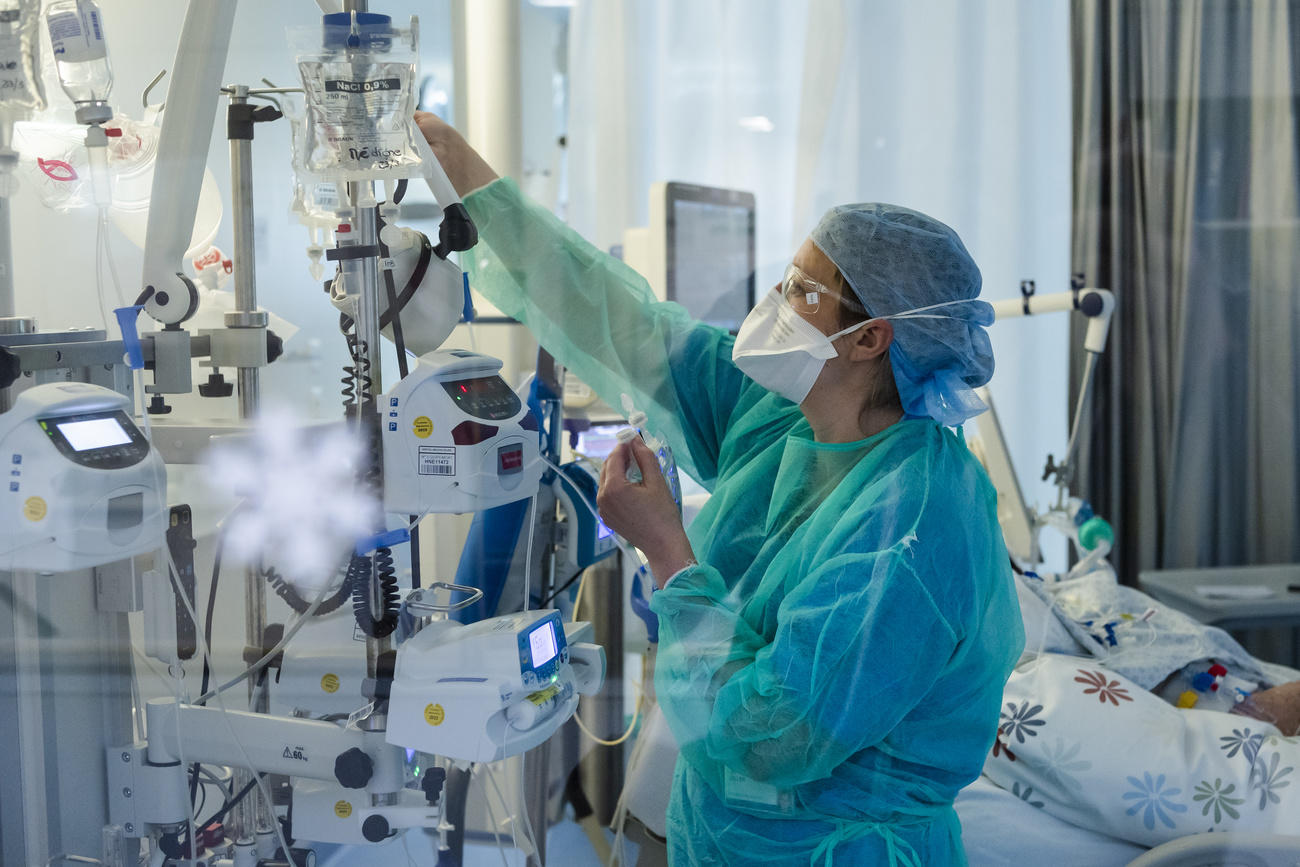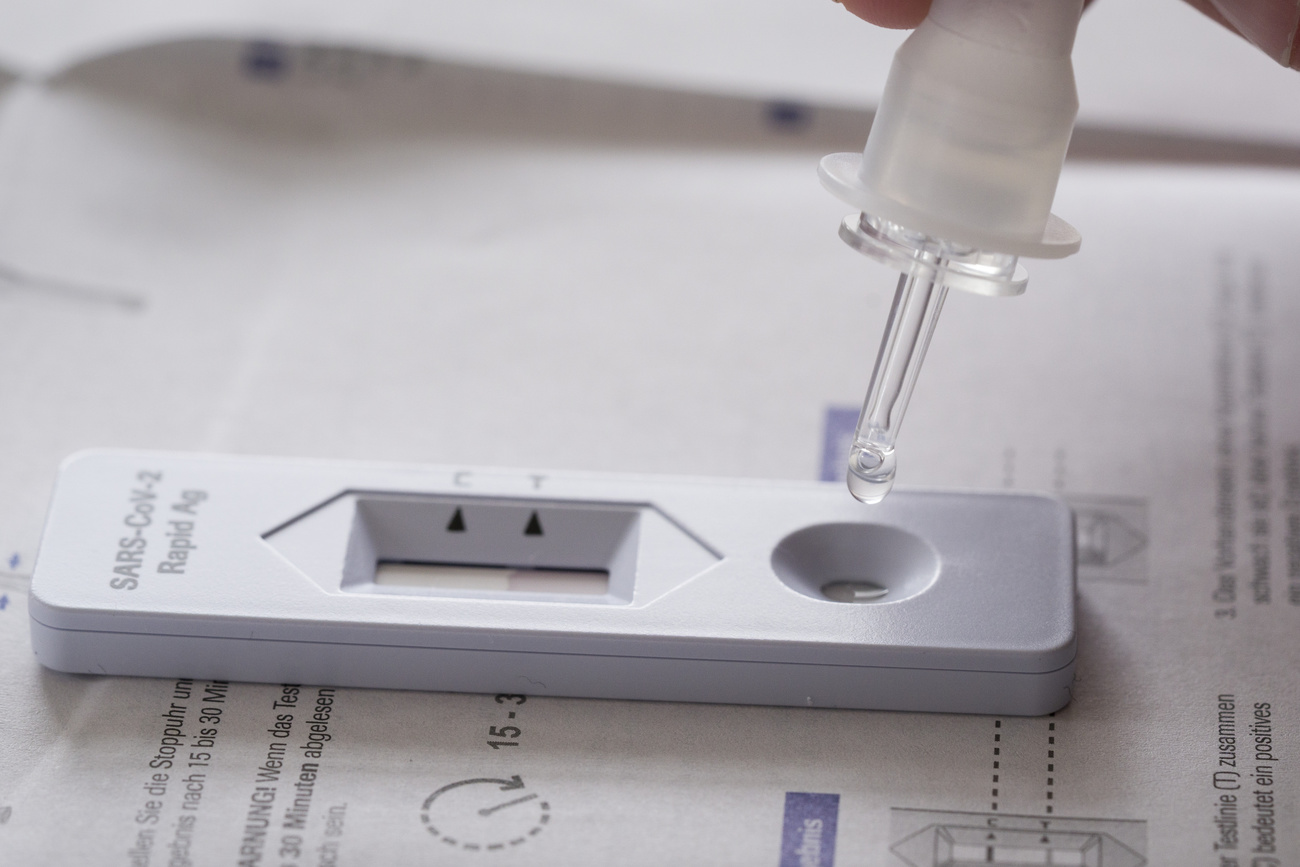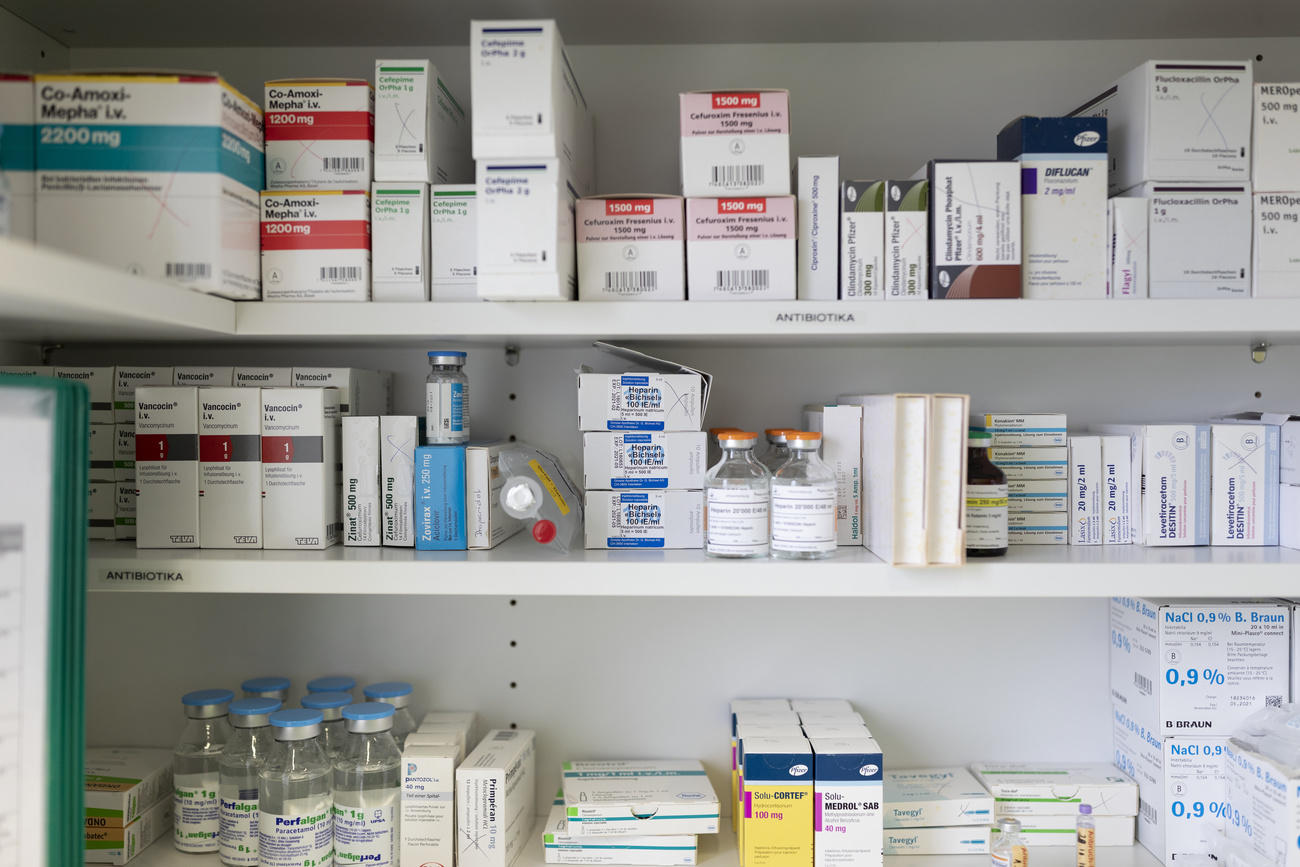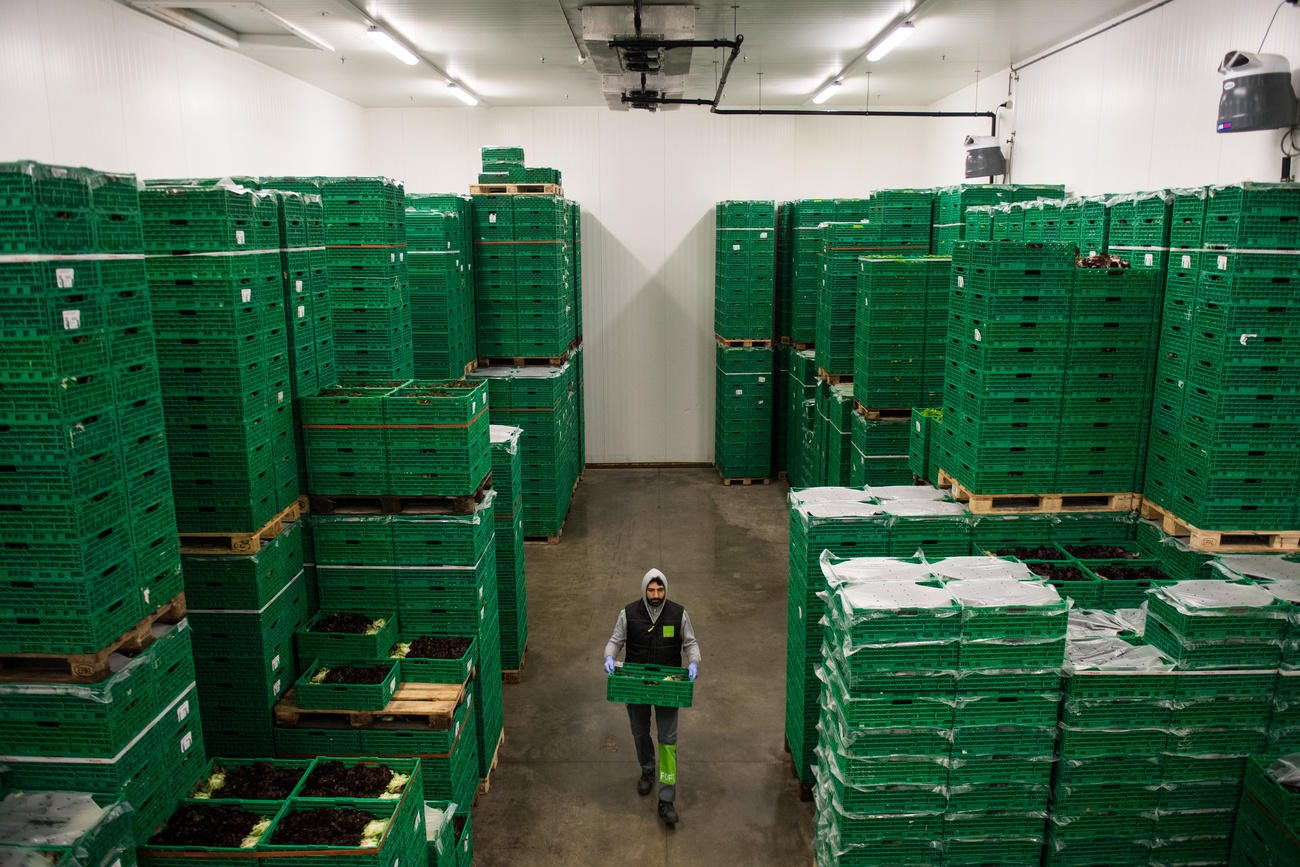Who decides who gets access to the silver bullet to Covid-19?

In a panic, it is difficult to make rational decisions, but the effects can last far beyond today’s health emergency.
Our regular analysis of what the biggest global companies in Switzerland are up to. This week: medical innovation at a crossroads, multinationals confront national interests and economic impacts of Covid-19.
There are some 70 drugsExternal link and experimental compounds that are being studied to treat the coronavirus and it seems that new diagnostic kits are popping up almost every other day. Amidst all this great innovation, is the burning question of who will get credit for it allExternal link and who will have access to the eventual solutions.

More
Coronavirus: the situation in Switzerland
Some NGOs are calling for affordability clausesExternal link and eliminating exclusive licensing to ensure that whatever silver bullet to Covid-19 is developed doesn’t just land in the hands of those who can pay the highest price. But all of the uncertainty has led some governments to hoard promising drug candidates or restrict medicine exports, which some experts warn could do more harm than good.
At a press conference in Switzerland, one reporter asked whether the Swiss government could demand that Roche, a Swiss company, set aside coronavirus testing kits for Switzerland instead of sending them to the US. The same question could easily be posed to other industries from ventilators to food supplies.
But multinational companies don’t usually have national loyalties in that way and as the Swiss head of infectious disease respondedExternal link, oftentimes one part is made in one country, and another part somewhere else.
Many CEOs of “Swiss” companies not to mention employees, customers and business partners are from all over the world. Moreover, giving fast-track access to some countries over others based on arbitrary criteria flies in the face of some basic human rights principles.
This pandemic is like nothing ever seen and it could rewrite the rulebook in the way multinationals operate, and if nationalism takes hold as many suspectExternal link, multinationals could be in for a rough ride.
What are your views? Send me a message: jessica.davis@swissinfo.ch
In other news:
Some Swiss healthcare companies are coming off the sidelines in the race to contain the virus. This includes Roche, which received emergency approval for the first commercial test that offers results in less than 3.5 hours. Novartis also donated up to 130 million doses of generic hydroxychloroquine that is under evaluation as a potential treatment to Covid-19External link. The company also created a response fund offering $1 million in grants to support communities affected by the pandemic.
Hamilton Medical, the Switzerland-based global market leader in the manufacture of ventilators, has ramped up production by 50% but is still struggling to meet demand.
The crisis is also having ripple effects on other markets such as antibiotics. With more countries shutting borders, trade restrictions in India and manufacturing disruptions in China, there are concerns that potential shortages and growing drug resistance could complicate treatment. This is especially true as the risk of hospital infections rise the longer people are in intensive care.
The economic effects of the crisis go far beyond any best analyst’s guess at this point. It’s hard to believe that on February 19, the Swiss were celebrating another surplus year and just over a month later experts warn the economy is headed for a severe recession. A survey of over 80 companies in Switzerland found that up to 85% of all export companies will be affected by supply bottlenecks within the next two months.
A spokesperson from the Swiss industrial giant ABB told me that it isn’t possible to quantify the impact of the pandemic at the moment, but “ABB remains prepared for any scenario, including one in which we may be asked to again suspend production in line with government notices.”
“Prepared for any scenario” seems to be the motto in such times of uncertainty.
Thanks for reading and stay safe.

In compliance with the JTI standards
More: SWI swissinfo.ch certified by the Journalism Trust Initiative




You can find an overview of ongoing debates with our journalists here. Please join us!
If you want to start a conversation about a topic raised in this article or want to report factual errors, email us at english@swissinfo.ch.